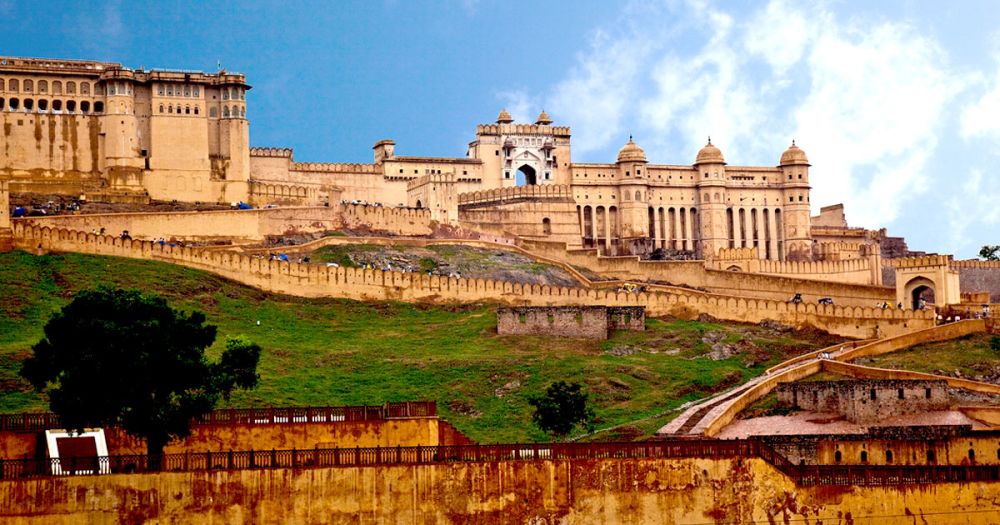

Amer Fort, also known as Amber Fort, has been a pivotal attraction in the vibrant city of Jaipur, Rajasthan. Nestled atop a hill and overlooking the Maota Lake, the fort dates back to the late 16th century. Constructed by Raja Man Singh I in 1592 AD, Amer Fort served as the royal residence and the administrative headquarters for the Rajput Maharajas and their families.
Over the years, Amer Fort became renowned for its artistic Hindu style elements, with its large ramparts, series of gates, cobbled paths, and the intricate use of red sandstone and marble. The fort's architecture is a magnificent example of Rajput decorations, combined with Mughal-influenced artistry. The Sheesh Mahal, or the 'Palace of Mirrors', is especially famous for its beautifully adorned walls and ceilings reflecting mirror work which has attracted tourists from all over the world.
The history of tourism at Amer Fort can be traced back to the time when India started promoting its heritage sites in the early 20th century. After India's independence in 1947 and the subsequent efforts by the Rajasthan Tourism Development Corporation, the popularity of Amer Fort as a tourist destination started picking up pace.
The fort's recognition as a UNESCO World Heritage Site under the group "Hill Forts of Rajasthan" in 2013 propelled its status in the international tourism market. Each year, thousands of tourists from within India and around the globe visit Amer Fort, drawn by its history, architectural grandeur, and its elephant rides offering a royal experience. The Light and Sound Show added in recent years narrates the fort's history, making it a memorable visit for the tourists.
Today, Amer Fort stands as one of the most visited tourist attractions in Jaipur. The fort has adapted to the latest tourism trends by incorporating modern facilities such as audio guides available in multiple languages, better accessibility options for the differently-abled and a focus on sustainable tourism to preserve the fort's structure and environment.
With the advent of social media, Amer Fort has received heightened attention as visitors share their experiences online, making it a "must-visit" location on travel bucket lists. The tourism industry around Amer Fort supports a wide range of local economies, from handicraft vendors to traditional restaurants, making it a significant contributor to the cultural and economic vibrancy of Rajasthan.
The Government of Rajasthan, in collaboration with the Indian Ministry of Tourism, continues to develop measures to ensure that Amer Fort remains preserved for future generations. Conservation efforts, along with promotional activities, are ongoing to maintain the fort's status as an icon of Indian heritage and a beacon of tourism in Jaipur.